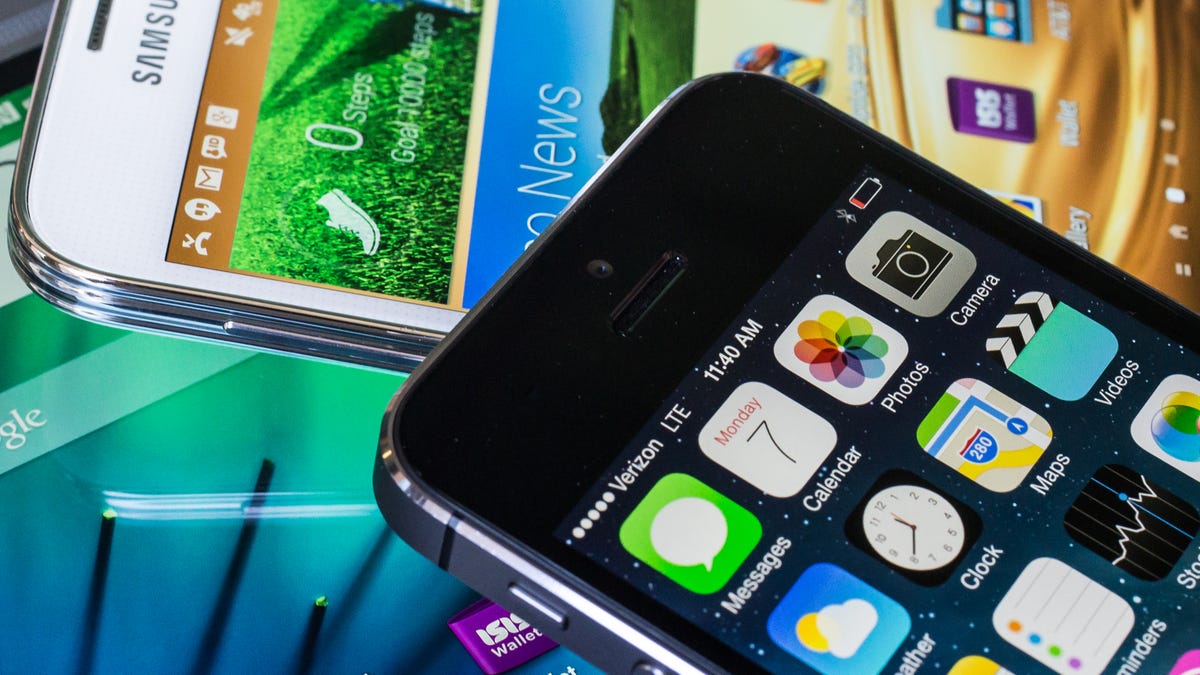Supreme Court steps into Apple v. Samsung fray
The Supreme Court, which hasn't looked at a design patent case since the 1800s, could set a precedent with ripple effects throughout the tech industry.

Apple's years-long fight with Samsung Electronics over design patents will make its way to the US Supreme Court.
The nation's highest court on Monday agreed to review the case, the first time it has looked at a design patent case since the 1800s.
Samsung filed a request with the Supreme Court in December to re-examine the case after losing in court to Apple, which resulted in Samsung's requirement to pay Apple $548 million.
Apple shot back in February, calling the case "legally unexceptional" and asking the Supreme Court not to "prolong" the battle against Samsung. Apple also argued that the case didn't present a question important enough to require resolution at the top of the US judicial system.
"We welcome the court's decision to hear our case," Samsung said in a statement Monday. "The court's review of this case can lead to a fair interpretation of patent law that will support creativity and reward innovation."
The Supreme Court's involvement may put the entire Apple v. Samsung legal wrangling on hold. The damages retrial was scheduled to begin on March 28 in San Jose, California, but Samsung filed an emergency motion to stay that trial in light of the high court's decision to review the case.
"Absent a stay, there is a serious risk that a fourth trial would be necessary because the Supreme Court's decision on design-patent damages could significantly alter the scope of the upcoming retrial, as well as the jury instructions to be given at that trial," Samsung's filing said. "And though trial is only a week away, a stay would still have a very real practical effect, as it would avoid potentially duplicative and wasteful proceedings and ensure that the Court, the parties, and the jurors do not needlessly expend time and resources on burdensome trial and post-trial proceedings that may well be upset by the Supreme Court's decision."
Apple declined to comment. But the company's attorneys late Monday filed a response to Samsung's motion, saying "moving forward with proceedings in this case would promote the orderly course of justice." Apple also sought to argue how much time and work it has put into preparing for the trial. And it noted the upcoming trial is expected to take about one week.
"Granting Samsung's motion to stay proceedings now would forfeit the substantial time and resources that the court and the parties have poured into preparing for the upcoming trial and hearing on supplemental damages," Apple's filing said. "A stay could result in a delay of a year or more, and would necessitate a second, equally costly outlay of resources when the stay is lifted -- all of which will be for naught if the Supreme Court affirms the Federal Circuit's ruling applying the long-settled law of design patent damages."
A decision by the Supreme Court could have a ripple effect across the technology industry and ultimately impact the gadgets you buy because it could finally define the value of design work. For that reason, the case has drawn the attention of a wide number of legal experts, nonprofit groups and technology companies. Together, they filed six amicus, or "friend of the court," briefs in support of Samsung, urging the Supreme Court to consider the case.
Some of Silicon Valley's biggest players, including Google and Facebook, argued in the amicus briefs that the lower-court ruling as it stands could have a "devastating impact" on the introduction of new products due to a heightened fear of legal challenges. Apple has said all along that it was doing what was necessary to defend its intellectual property and the value of its blockbuster iPhone franchise.
The last time the Supreme Court looked at a suit involving design patents was in the 1800s. Those cases involved a spoon handle, carpet, saddle and rug. Since that time, a few things have changed, such as the introduction of electronic devices from the likes of Apple and Samsung.
Samsung wants the Supreme Court to give guidance on what is covered by design patents, which protect the way an item is used and how it works and also include what damages can be collected.
The original Apple v. Samsung trial in 2012 pitted a pair of the world's largest tech companies against each other. The case captivated Silicon Valley and the tech industry because it exposed the inner workings of two notoriously secretive companies. It was just one of many trials around the world as the rivals sparred both in the marketplace and in the courtroom. At issue were design patents for a black, rectangular, round-cornered front face; a similar rectangular round-cornered front face plus the surrounding rim, known as the bezel; and a colorful grid of 16 icons.
Apple and Samsung last year agreed to bury the hatchet in their overseas cases, but their US suits have continued. In December, Samsung said it would pay Apple the $548 million ordered by court.
Updated at 8:40 a.m. PT: Responses from Samsung and Apple have been added.
Updated at 3:40 p.m. PT with Samsung intention to motion for stay in damages retrial.
Updated at 7:30 p.m. PT with Samsung's motion for a stay and Apple's opposition.

